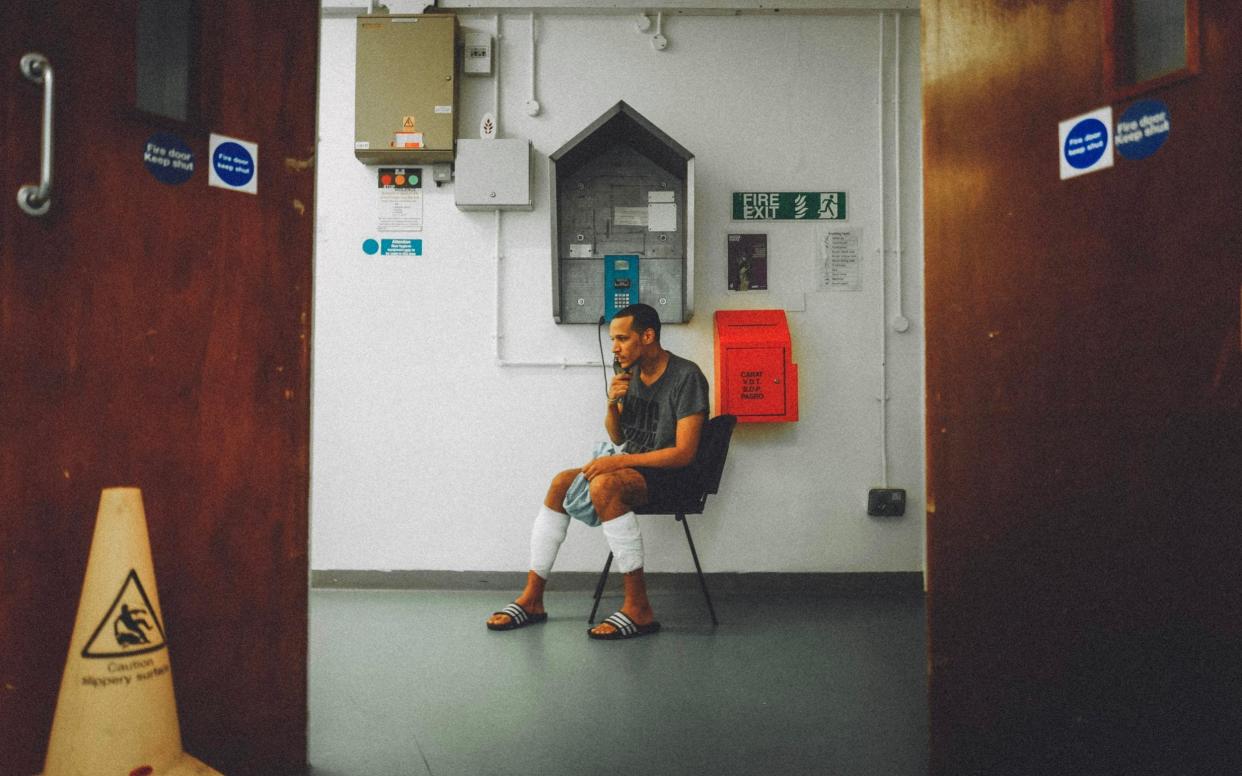Crime & Punishment episode 1 review - prisoners who may never be released

Crime & Punishment (Channel 4) wasn’t a screen adaptation of Dostoevsky’s doorstopper but yet another crime documentary. The saturation of this TV genre is becoming a problem to rival prison overcrowding.
At least this one was more panoramic than most. The weighty series aimed to be an holistic view of the justice system, capturing the work of the five Ps - police, probation, prison, prosecution and parole - over a two-year period.
A grim and gritty opening episode focused on two inmates of HMP Winchester serving the now-scrapped Imprisonment for Public Protection (IPP) sentences - controversial open-ended terms introduced in 2003 by New Labour’s David Blunkett which have since been branded a "violation of human rights" in a European court ruling and “a stain on the system” by Kenneth Clarke MP. On this evidence, it was difficult not to agree with both descriptions.
We met jittery Paul Bousell, 28, whose crime was robbing a convenience store at knifepoint. He had a history of violent offending but, as Bousell was at pains to point out, nobody in the hold-up was hurt. With no specific release date, he faced the prospect of lingering in jail until death unless he could convince the Parole Board he no longer posed a risk to the public.
The indeterminate jail stretch had removed Bousell’s hope and structure. Embittered by the system and locked up for all but half an hour each day, he spent his time smoking synthetic drug “spice”, hence didn’t seem safe to be let out. Never mind Dostoevsky, he was caught in a Kafka-esque nightmare.
Even more rawly sympathetic was erratic Aaron Harris, 31, who had an IQ of 140 but was diagnosed with ADHD and fell into teen crime. Frazzled and frustrated, he self-harmed with razor blades hidden in his mouth and his criss-crossed scars were heart-rending to behold - especially when Harris casually revealed a fresh, gaping laceration on his leg.
Access-all-areas cameras enabled us to sit in on parole hearings and prison staff meetings, while pondering the dilemmas ourselves. Aerial photography swooped over the Victorian jail’s radial roofs and 30ft walls, while composer Matthew Cracknell’s discordant string score added to the oppressive atmosphere.
Neither Bousell nor Harris got any closer to freedom. Overstretched and under-resourced, the firm-but-fair staff did their best in trying circumstances. It added up to a bleak but eye-opening insight into a justice system that seemed anything but just.

